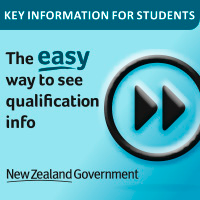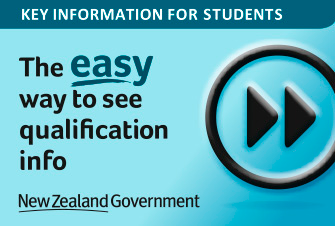Programme overview
This certificate is designed to be taken part-time by busy teachers and cross-sector professionals with an education focus to their work. Complete just two courses to gain your first postgraduate qualification. A broad range of courses is available: from digital learning, mentoring, and early childhood, through to educational change, literacy, sport, health and wellbeing, second language learning and supporting Māori learners.
Flexible delivery options and learning modes are also available to meet the increasingly diverse needs of our communities. Students with a GPA of 5 or higher who wish to go into further study can credit the postgraduate certificate courses towards a Master of Education, provided the certificate has not been awarded.
Study the Inclusive Education specialisation
One in four people in Aotearoa have a disability. This diversity is now represented in local early childhood settings and schools and teachers are expected to have the conceptual, culturally responsive and applied knowledge base needed to teach in inclusive environments.
In this specialisation, you’ll develop advanced knowledge and capabilities in inclusive practices to support diverse learners in educational settings. You’ll also extend your research skills through an inquiry-based approach and gain the skills and knowledge needed to take leading roles in effective planning, coordination and management of projects and in professional learning.
Find out more about the Inclusive Education specialisation.
Study the Early Childhood specialisation
Early childhood is a growth area – and one where highly qualified people are souight to progress a range of early childhood services, be they early childhood centres or related services for tamariki and their whanau. The complexities of these services require people with knowledge of and capability in complex and diverse contexts.
In this specialisation, you’ll develop advanced knowledge and capability in a range of fields, including psychology, leadership, child development, pedagogy, and contemporary global understandings of childhood. You’ll also progress your inquiry and research skills with the opportunity to complete a thesis if you choose this pathway.
Find out more about the Early Childhood specialisation.
Study the Literacy Education specialisation
Literacy is a life skill, a way of accessing, evaluating and generating knowledge. It's essential for participating in society and thinking critically. We use literacies to tell our stories, to learn and to convey who we are in the world. Literacy is key to valued educational outcomes.
The world is increasingly diverse, with multiple languages, modes, texts and worldviews. Multiple literacies are needed to access, develop and communicate knowledge, and to critically evaluate media and information online. Teachers at all year levels and in all learning areas or subjects are teachers of literacies.
In this specialisation, you will develop advanced critical skills, including the knowledge and capabilities to build on and develop the diversity of literacies and learners. You will build skills for working with children and young people and for literacy leadership.
This specialisation is relevant for all teachers who want to be critical consumers of research, designers for accelerated learning and formative evaluators of effective practices and resources.
Find our more about the Literacy Education specialisation here.
Programme structure
You can choose two 30-point courses from a wide variety of courses in your area of interest ranging from contemporary pedagogies, Māori/indigenous language revitalisation, and issues in literacy education, through to meeting the needs of gifted learners, social psychology of the classroom, assessment for learning and teaching, counselling and pastoral care and practitioner inquiry. This will help build your understanding and expertise in an area of interest or professional practice.
Requirement
60 points from a range of courses in Education Curriculum Studies; Education Practice; Education Professional Studies Māori; Education Professional Studies; Education Special; Education; Education Māori; or Social Work Child and Family Practice.
For those being admitted based on a non-education bachelors degree, you must include one of the following courses in your certificate: Contemporary Pedagogies (EDCURRIC 700); Special Topic: Being Māori, Thinking Theory (EDPROFM 700); Curriculum: Theory, Issues, Practice (EDPROFST 777); or Educational Psychology (EDUC 741).
See taught courses available at the faculty for your programme.
You'll also need to meet other requirements, including time limits and total points limits. See Postgraduate enrolment.
Sample programme structure
Semester 1 30 points
-
- Code:
- EDPROFST 738
- Name:
- Educational leadership
- Type:
- Elective course
- Points:
- 30 pts
Semester 2 30 points
-
- Code:
- EDPROFST 782
- Name:
- Educational change
- Type:
- Elective course
- Points:
- 30 pts
2025 entry requirements
My highest qualification is from:
Programme requirements
Minimum programme requirements
Minimum requirements listed here are the likely grades required and do not guarantee entry. We assess each application individually and applicants may require a higher grade to be offered a place.
-
Study optionTaught 60 pointsGrade requiredGPA Grade Point Average 3.0
Bachelor of Education (Teaching) or Bachelor of Arts (Education)
Further programme requirements
Taught 60 points
You must have completed a Bachelor of Education (Teaching), a Bachelor of Arts (Education), or a relevant bachelors degree (such as in Arts (Music) or Science), with a GPA of 3.0 or higher; or you can gain entry if you have completed a Graduate Diploma in Education, a Graduate Diploma in TESOL, or a Graduate Diploma in Teaching (ECE, Primary, Secondary), or an equivalent programme.
Alternatively, if you can apply if you have a relevant professional qualification in education (such as a language teaching and learning, psychology, social work, sociology) and two years teaching experience as approved by the Head of School.
Other pathways to study
If you have not met the requirement, you can still gain entry if you have satisfactorily attained an equivalent qualification or professional experience in the education profession.
Programme requirements
Minimum programme requirements
Minimum requirements listed here are the likely grades required and do not guarantee entry. We assess each application individually and applicants may require a higher grade to be offered a place.
-
Study optionTaught 60 pointsGrade requiredGPE Grade Point Equivalent 3.0
A relevant undergraduate degree, such as in Education, Arts (Music) or Science.
-
QualificationIELTS Academic International English Language Testing SystemScore required6.5
No bands less than 6.0
Further programme requirements
Taught 60 points
You must have completed a Bachelor of Education (Teaching), a Bachelor of Arts (Education), or a relevant bachelors degree (such as in Arts (Music) or Science), with a GPA of 3.0 or higher; or you can gain entry if you have completed a Graduate Diploma in Education, a Graduate Diploma in TESOL, or a Graduate Diploma in Teaching (ECE, Primary, Secondary), or an equivalent programme.
Alternatively, if you can apply if you have a relevant professional qualification in education (such as a language teaching and learning, psychology, social work, sociology) and two years teaching experience as approved by the Head of School.
Other pathways to study
If you have not met the requirement, you can still gain entry if you have satisfactorily attained an equivalent qualification or professional experience in the education profession.
How much does a Postgraduate Certificate in Education cost per year?
2025 fees
- Domestic students
- NZ$4,516.80*
- International students
- NZ$20,797*
Fees are set in advance of each calendar year and will be updated on this website. Fees are inclusive of 15% GST, but do not include the Student Services Fee, course books, travel and health insurance, or living costs. Amounts shown are indicative only. In addition to the tuition fees, there is a Student Services Fee of $9.24 per point, estimated at $554.40 for full-time study (60 points). Fees will be confirmed upon completion of enrolment into courses.
*Please note: amounts shown are indicative and estimates only.
Find out about financial support information
Scholarships and awards
Find out about the scholarships you may be eligible for.
Student loans and allowances
Are you a New Zealand citizen or resident? You could be eligible for a student loan or allowance.
Cost of living
Get an idea of how much accommodation and general living in Auckland will cost.
Key dates
Note: For international applicants, the application closing date for Semester Two 2024 is 24 May 2024.
Please note: We will consider late applications if places are still available. International students should start the application process as early as possible to allow sufficient time to apply for a visa.
Application closing dates
- Summer School 2024
- 1 December 2023
- Semester One 2025
- 8 December 2024
- Semester Two 2025
- 4 July 2025
Start dates
Here are the start dates for the programme.
| Summer School | Starts – 6 January |
|---|---|
| Ends – 19 February | |
| Semester One | Starts – 3 March |
| Ends – 30 June | |
| Semester Two | Starts – 21 July |
| Ends – 17 November |
| Summer School | Starts – 5 January |
|---|---|
| Ends – 18 February | |
| Semester One | Starts – 2 March |
| Ends – 29 June | |
| Semester Two | Starts – 20 July |
| Ends – 16 November |
Other important dates
See important dates for the academic year, including orientation, enrolment, study breaks, exams, and graduation.
View our study pathways guide to help you decide whether this programme is right for you.
If you need any help, you can reach out to our Postgraduate Taught Recruitment Specialist: pgt@auckland.ac.nz
Student Hubs
Visit your hubs for help and advice on any aspect of your studies and life at University.
The Student Hubs are your physical gateway to Waipapa Taumata Rau | the University of Auckland.
The Student Hubs services are available seven days a week at the City and Grafton campuses, with friendly staff available to provide you with advice on any aspect of your studies and life at the University.
Where could this programme take you?
This certificate will enable professionals across the education sector to build their understanding and expertise in an area of interest or practice. An ideal next step in professional development, it can qualify you for more advanced responsibilities. This qualification will not lead to teacher registration. If you complete this certificate with a GPA of 5 or higher, you can credit the courses passed to the Master of Education, provided the certificate has not been awarded.
Jobs related to this programme
- Communities of Learning (CoLs) leader
- Education sector leader
- Human resources practitioner
- Trainer in organisations
Student career planning service
Once you become a student at the University, you can get help with planning and developing your career from Career Development and Employability Services.
Do you need help?
Can’t find the answer in AskAuckland?
Need to speak to someone?
You can phone us directly.
- Auckland
- 923 5025
- Outside Auckland
- 0800 61 62 63
- International
- +64 9 373 7513


